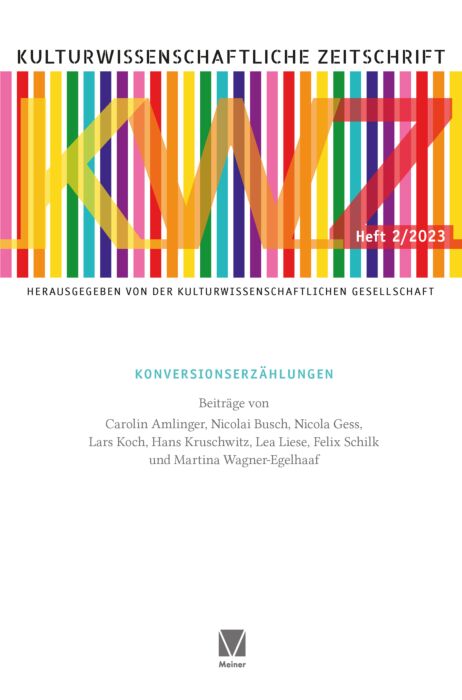Konversionserzählungen
Politik und Poetik des Seitenwechsels

Beschreibung
Bibliographische Angaben
| Einband | |
|---|---|
| DOI | |
| Auflage | |
| ISBN | |
| Sprache | |
| Originaltitel | |
| Umfang | 195 |
| Erscheinungsjahr (Copyright) | 2024 |
| Reihe | Kulturwissenschaftliche Zeitschrift |
| Herausgeber/in | Nicola Gess Carolin Amlinger Lea Liese |
| Beiträge von | Carolin Amlinger Nicolai Busch Nicola Gess Lars Koch Hans Kruschwitz Lea Liese Felix Schilk Martina Wagner-Egelhaaf |
| Hersteller nach GPSR |
Felix Meiner Verlag GmbH |
Service
Einzelartikel als PDF
Open Access unter CC-BY-SA 4.0 Lizenz
Open Access unter CC-BY-SA 4.0 Lizenz
Open Access unter CC-BY-SA 4.0 Lizenz
Open Access unter CC-BY-SA 4.0 Lizenz
Open Access unter CC-BY-SA 4.0 Lizenz
Open Access unter CC-BY-SA 4.0 Lizenz
Open Access unter CC-BY-SA 4.0 Lizenz
Open Access unter CC-BY-SA 4.0 Lizenz
